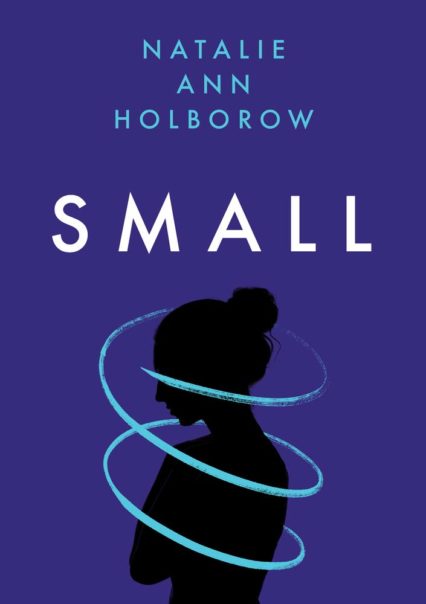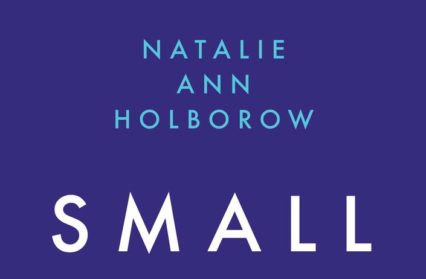Nathan Munday reviews Small, the new collection from Natalie Ann Holborow which weaves a haunting eating disorder with folklore and mythology.

Every David has a Goliath, and every Goliath has that David in the corner of the eye. The difference in this brave new collection by Natalie Ann Holborow is that the speaker doesn’t slaughter her demon or even ignore it. No, she faces it, yanks it out into the open, gives it a physical form and voice, and engages the eating disorder in direct interlocution: ‘Small is not me / but part of me’ the speaker declares – a complex relationship best articulated in poetry.
The arena of this engagement is multivalent and varied. From the streets of Varanasi to the body’s topography, the reader is both removed and involved at the same time. Kate Noakes has already noted that the ‘India poems’ are a ‘sensual feast’ and I wholeheartedly agree. I heard the screaming monkey and was tempted/repulsed by that ‘sticky’ ‘Gulab Jamun. We are presented with word-landscapes where sugar is as threatening, and perhaps appealing, as the rising cobra in Assi Ghat. By ‘After India’, I am ‘stinking of culture’ and anticipate the omnipresence of the ‘gargantuan Small’ who metamorphoses like a Celtic flower-maiden from page to page.
So many of the poems deal directly with Small: the demon ‘Clunks into life / like a terrible clock, counting the bars of her ribs’; she ‘sneaks in smelling of marzipan’; and at times, she even ‘hoots softly’ at her back. We are given a glimpse into something which is both ‘fierce’ and curiously ludic at the same time. For example, in ‘Small Visits the Bakery’, the demon ‘springboards from bread roll to bread roll, / kicking flour as she goes’ and, in ‘Small Loses Sleep’, we are told that:
Small doesn’t let me sleep
in the small hours
playing the accordion
of my waist
thumping a xylophone
out of my vertebrae
Small is portrayed as this demanding instrumentalist; music is unashamedly produced by her, and the paradoxical result is this wonderful collection.
But ‘it’s ok to feel confused’ the doctor declares in ‘Diagnosis’, a wonderfully layered piece of word-craft which suggests a kind of genesis to the hud a lledrith that makes a human being:
I ask
to go home, but there are things to do,
blood rolled to a miniscule ruby, balled
at the end of my finger. Voodoo pins
to master. Do you understand?
That’s the clinical, almost cruel question given to the child. The speaker doesn’t answer the doctor and why should she? Instead, we sit silently next to her in the car on the way home:
We discuss anything but this bunch-of-grapes
useless inside me, a bobbing goldfish flipped over.
That line took me back to my own childhood when I stood next to my grandfather’s pond with my younger cousin. We gazed at that pale fish for a long time not knowing what to do or say.
Magic, folklore, witchcraft and mystery – perhaps the most important element bottled in poetry – are unashamedly interwoven with the empirical. The speaker is not afraid to question and wonder. The poems are as colourful and complex as those labyrinthine streets that shore the Ganga of her India poems. Holborow leads us through the alleyways, giving us access to the dark corners of diabetes (something unfamiliar to most) before re-visiting the ‘sudden art’ of the incarnation in the more familiar Nativity poems. However, the impact of that ‘sudden cry’ in ‘The Magi’ is both breath-taking and fresh:
The moon melts nightly
Across deserts, slow fires
Wagging bright in the dunes –
At the child’s sudden cry, pure as milk,
A pale eye crisps with wonder,
Weeps light across colder heavens.
Holborow claims this well-traversed masculine scene with her own language. To conclude, her collection is – I’ll use the word again – brave and inspiring. This is a poet who taps into the ‘wonder’ of the ‘child’s sudden cry’ as well as pausing and questioning the caesura of ‘colder heavens’.
Small by Natalie Ann Holborow is available now from Parthian.
Nathan Munday has contributed to Wales Arts Review before.











